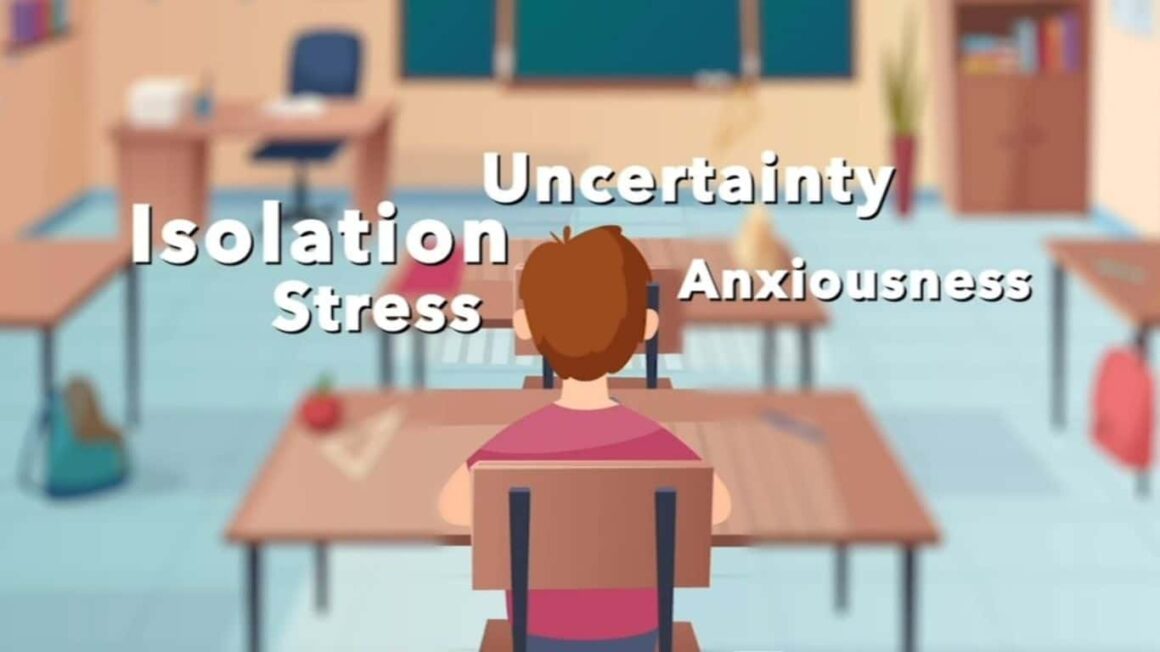- Mental health support system refers to the various resources and services that are put in place to help individuals with…
- The goal of a mental health support system is to provide individuals with the tools and resources they need to manage an…
- Early intervention is crucial: By providing mental health support in schools and colleges, students can receive early in…
- Improved academic performance: When students receive mental health support, they are more likely to perform better acade…
- This is because mental health support can help students manage stress, improve focus, and better cope with academic chal…
- This can include support groups, crisis hotlines, and mental health clinics.
Need for Mental Health Support in Education: Mental health is a critical component of overall well-being, yet it is often overlooked in the education system. From the stress of standardized testing to the challenges of social and emotional development, students of all ages face unique mental health struggles in the classroom. Unfortunately, many schools lack the resources and support to properly address these issues. As a result, it is essential that we prioritize mental health support in education to ensure that all students have the opportunity to thrive academically, socially, and emotionally. This article will explore the need for mental health support in education and the ways in which schools can provide this support to their students.
What is Mental Health Support System

Mental health support system refers to the various resources and services that are put in place to help individuals with mental health issues. These resources can include mental health professionals such as therapists, counselors, and psychiatrists, as well as support groups, self-help resources, and crisis hotlines. The goal of a mental health support system is to provide individuals with the tools and resources they need to manage and improve their mental health. This can include access to diagnosis and treatment for mental health conditions, as well as ongoing support and care to help individuals maintain their mental well-being. Additionally, the support system can also include steps to prevent the escalation of mental health issues such as education, awareness, and early intervention.
Why is Mental Health Support System Important in School and Colleges

Mental health support systems are important in schools and colleges for several reasons:
- Mental health issues are common among students: Mental health conditions such as anxiety and depression are prevalent among students of all ages. Without proper support, these conditions can negatively impact a student’s academic performance and overall well-being.
- Early intervention is crucial: By providing mental health support in schools and colleges, students can receive early intervention and treatment for mental health issues. This can prevent the escalation of symptoms and reduce the long-term impact of mental health conditions.
- Improved academic performance: When students receive mental health support, they are more likely to perform better academically. This is because mental health support can help students manage stress, improve focus, and better cope with academic challenges.
- Promotes overall well-being: Mental health support systems can help students develop the skills and tools they need to manage their mental health and improve their overall well-being. This can help students achieve their full potential both academically and personally.
- Prevents future problems: The Mental health issues that are left untreated can lead to more severe problems in the future. By providing mental health support in schools and colleges, we can prevent future mental health issues and ensure that students have the skills and resources they need to maintain their mental well-being throughout their lives.
- Social and emotional development: It (Mental health support systems) play a crucial role in the development of the students’ social and emotional skills. It can help students to develop resilience, empathy, self-esteem and many more.
Mental health support systems are important in schools and colleges because they help to ensure that students have the tools and resources they need to manage and improve their mental health. This can help them to achieve their full potential academically, socially, and emotionally.
Ways To Incorporate Mental Health Support System Into The Education System

There are several ways to incorporate mental health support systems into the education system:
- Hire mental health professionals: Schools and colleges should have mental health professionals such as counselors, social workers, and psychologists on staff. These professionals can provide individual and group counseling, as well as support and guidance for students and their families.
- Provide training for staff: Teachers and other staff members should be trained to recognize the signs of mental health issues and to provide appropriate support and referrals to mental health professionals.
- Develop a school-wide approach: Mental health support systems should be integrated into the overall school culture and curriculum. This can include activities such as mindfulness practices, social-emotional learning, and stress management techniques.
- Partner with community organizations: Schools and colleges should work with community organizations to provide additional mental health resources for students and families. This can include support groups, crisis hotlines, and mental health clinics.
- Establish a confidential reporting system: Establishing a confidential reporting system where students, teachers and staff can report any concerns about mental health issues can help to identify students who may be in need of support and provide them with the appropriate resources.
- Encourage open communication: Encourage an open and honest dialogue about mental health issues among students, teachers, and staff. This can help to reduce the stigma associated with mental health and make it easier for students to seek help when they need it.
- Increase awareness: Increase awareness about mental health issues by providing education and information to students, parents, and staff. This can help to educate people about the signs of mental health problems and the resources available to help.
By incorporating these strategies into the education system, schools and colleges can provide the necessary support and resources to help students manage and improve their mental health. This can help them to achieve their full potential academically, socially, and emotionally.
Also Read: 15 Benefits of Physical Education and Outdoor Learning



